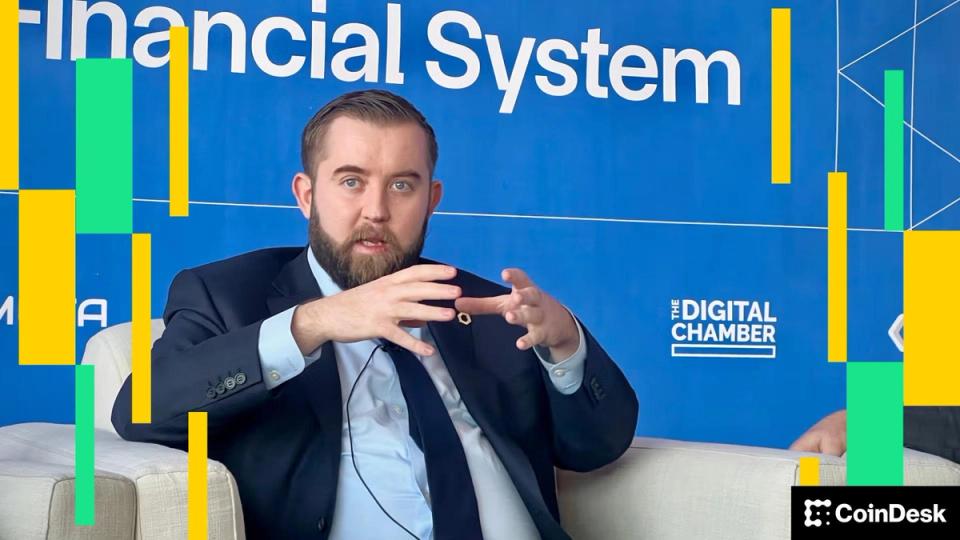—TechRound does not recommend or endorse any financial or investment products or advice. All articles are purely informational—
With the rising popularity of digital currencies such as Bitcoin and Ethereum, more people are turning to cryptocurrencies as a form of investment and financial transaction. However, as the crypto market grows, so does the need for robust security measures to protect these digital assets. The unique nature of cryptocurrencies requires a different approach to security compared to traditional financial assets. In this section, we will delve into why crypto security is extremely important and the risks associated with digital currency investments.
Cryptocurrencies operate on decentralized networks using blockchain technology. While this decentralization offers benefits such as reduced transaction costs and increased transaction speed, it also brings unique security challenges. Unlike traditional bank accounts or online financial services, there is typically no central authority to reverse fraudulent transactions in the crypto world. Additionally, the pseudo-anonymous nature of these transactions can make detecting illegal activity more challenging.
Types of crypto wallets and their security features
When it comes to storing and managing your cryptocurrency, choosing the right wallet is crucial. Essentially, a crypto wallet is a software program or hardware device that stores the keys you use to send and receive various cryptocurrencies. They also allow you to monitor your balance. There are two main types of wallets: hot wallets and cold wallets.
Hot wallets are connected to the internet and provide convenience for regular transactions. These can be apps on a smartphone or computer and are typically easy to set up and use. However, being online means they are more susceptible to hacking and other online vulnerabilities.
On the other hand, cold wallets are offline storage options, making them very secure against online hacking attempts. These include hardware wallets, paper wallets, and certain types of software wallets that can work offline. For long-term investors or those who hold significant amounts of cryptocurrency, cold wallets are often recommended due to their enhanced security features.
Choose the right hardware wallet
For those looking to maximize the security of their crypto investments, hardware wallets are an excellent choice. Hardware wallets are physical devices that store your private keys offline. They come in different forms, but the most common are USB-like devices that you can plug into your computer to access your crypto assets.
One well-known brand in the hardware wallet market is Trezor. Trezor’s line of wallets, including the Trezor Model T and Trezor Model One, are widely recognized for their robust security features and user-friendly interfaces. The Trezor Model T, for example, offers a touchscreen interface for enhanced usability, while the Trezor Model One is known for its simplicity and efficiency. The upcoming Trezor Safe 3 is also attracting attention for its advanced security features.
Choosing a trusted seller is key if you are considering investing in a Trezor hardware wallet. Buying from an official Trezor retailer guarantees the product’s authenticity and protects you from the dangers of counterfeit items. Certified resellers will usually offer a variety of Trezor models, as well as ongoing support and advice, so you can find a hardware wallet that matches your specific security requirements and investment approach.
There is usually a reseller to cover every region of the world; for UK readers, Monix is the most established official Trezor reseller, known for their range and reliability.
Best Practices for Crypto Wallet Security
In addition to choosing a secure hardware wallet, there are several best practices you should follow to protect your crypto investments. These practices are essential regardless of the type of wallet you use and play a crucial role in overall security management.
First, it’s important to keep your wallet’s software updated. Regular updates include security improvements and new features that can strengthen your wallet’s defenses against new threats. For hardware wallets, this means connecting the device to your computer and following the manufacturer’s instructions for updates.
Another critical practice is to use strong, unique passwords for your wallet and related accounts. Avoid using easy-to-guess passwords or repeating the same passwords across platforms. Also consider using two-factor authentication (2FA) for an extra layer of security.
Backing up your wallet is also crucial. Most wallets will provide you with a recovery phrase when you first set it up. This phrase is the key to restoring your wallet if your device is lost, stolen or damaged. Make sure you save this recovery phrase in a safe place, separate from where you keep your wallet.
Advanced security measures for crypto investors
For individuals deeply invested in the world of cryptocurrency, taking additional security measures can provide even greater peace of mind. Beyond the basic practices, there are advanced strategies that can significantly improve the security of your digital assets.
One effective approach is to use multi-signature wallets. These wallets require multiple private keys to authorize a transaction. This feature adds an extra layer of security as it prevents unauthorized access even if one key is compromised. This is especially useful for those who manage joint investments or for businesses that deal in cryptocurrency.
Another advanced strategy is to diversify your wallet usage. Don’t put all your digital assets in one wallet. Instead, spread it across multiple wallets – a mix of hot and cold storage. This way, even if one wallet is compromised, your other assets remain safe.
Encrypting backup phrases and keys is also an important step. If you store your recovery phrase or private keys digitally, make sure they are encrypted. This protects your data in case your storage medium is lost or stolen.
Stay informed
The cryptocurrency world is constantly evolving, with new threats and security measures emerging regularly. Staying informed about the latest trends in crypto-security is crucial for anyone investing in this space.
Regularly reading trusted crypto news sites, participating in online forums, and following thought leaders in the cryptocurrency community can keep you abreast of new threats and security practices. In addition, subscribing to newsletters from trusted sources can provide timely updates and expert insights.
Attending webinars, workshops and conferences focused on cryptocurrency and blockchain technology is also beneficial. These events not only provide valuable information, but also provide opportunities to network with other investors and professionals in the field, potentially leading to valuable insights and tips.
Large scale investment security
For those dealing with large-scale crypto investments, security plays an even more critical role. High-value portfolios are attractive targets for sophisticated cybercriminals, making top-level security practices essential.
In addition to using hardware wallets and using advanced security measures, consider consulting with a cybersecurity expert who specializes in cryptocurrency. They can provide personalized advice and help set up additional layers of security tailored to your specific needs.
Another aspect to consider is insurance for your digital assets. As the crypto market matures, more insurance companies are offering products designed to protect against theft or loss of cryptocurrency. This can be a valuable addition to your security strategy, especially for significant investments.
Finally, for institutional investors or businesses, implementing an internal protocol for handling cryptocurrency is essential. This includes training staff on security best practices, setting up strict access controls and regularly auditing your security measures to ensure they are up to date.
In summary, securing your cryptocurrency investments involves a combination of choosing the right storage options, following best practices, staying informed, and considering additional measures for large-scale investments. By taking these steps, you can significantly reduce the risk of losing your valuable digital assets to cyber threats. Remember, in the ever-changing world of cryptocurrency, vigilance and proactive security measures are key to safeguarding your investments.
—TechRound does not recommend or endorse any financial or investment products or advice. All articles are purely informational—
Disclaimer for Uncirculars, with a Touch of Personality:
While we love diving into the exciting world of crypto here at Uncirculars, remember that this post, and all our content, is purely for your information and exploration. Think of it as your crypto compass, pointing you in the right direction to do your own research and make informed decisions.
No legal, tax, investment, or financial advice should be inferred from these pixels. We’re not fortune tellers or stockbrokers, just passionate crypto enthusiasts sharing our knowledge.
And just like that rollercoaster ride in your favorite DeFi protocol, past performance isn’t a guarantee of future thrills. The value of crypto assets can be as unpredictable as a moon landing, so buckle up and do your due diligence before taking the plunge.
Ultimately, any crypto adventure you embark on is yours alone. We’re just happy to be your crypto companion, cheering you on from the sidelines (and maybe sharing some snacks along the way). So research, explore, and remember, with a little knowledge and a lot of curiosity, you can navigate the crypto cosmos like a pro!
UnCirculars – Cutting through the noise, delivering unbiased crypto news







